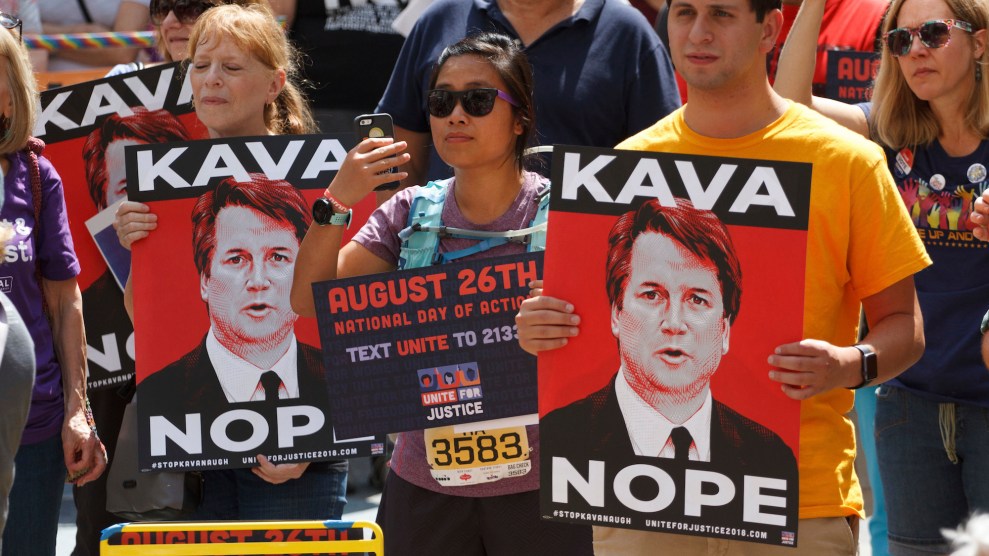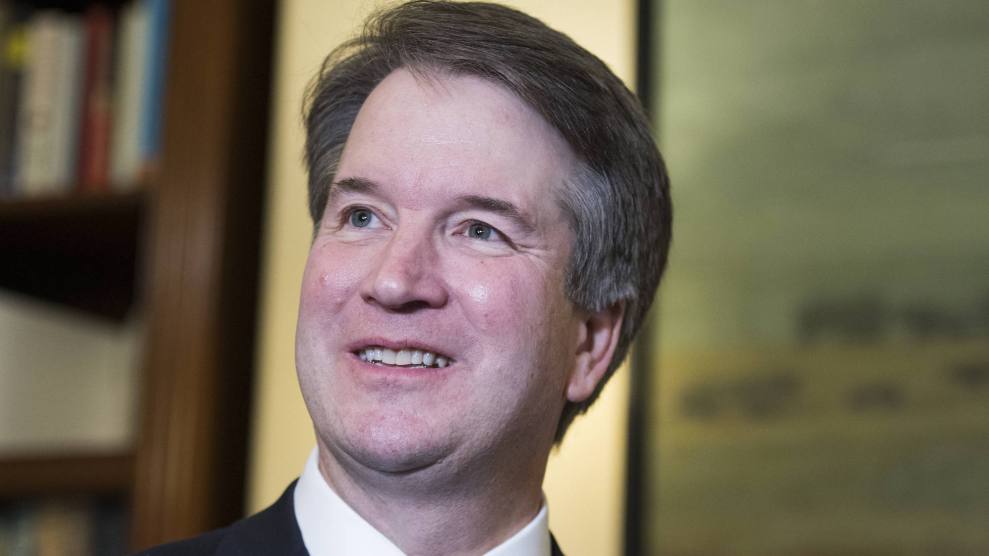
Demonstrators attend the Unite for Justice rally held in the courtyard of City Hall, organized by progressive activists to oppose the confirmation of President Trump's nominee for the Supreme Court, Brett Kavanaugh. Michael Candelori/Pacific Press/Sipa via AP Images
When Brett Kavanaugh appears before the Senate Judiciary Committee next week for the hearing to consider his nomination to replace retired Justice Anthony Kennedy on the Supreme Court, he will officially become the most unpopular person to sit in that seat since Robert Bork. Bork’s nomination was scuttled in 1987 because of what were seen as his extreme legal views.
Polls continue to show that, of those paying attention, few Americans are supportive of Kavanaugh’s nomination. In the week or so after President Donald Trump nominated Kavanaugh to fill Kennedy’s seat in July, polls from Fox News to Gallup to Pew showed that fewer than 40 percent of respondents thought he should be confirmed. According to the polling site FiveThirtyEight, those numbers ranked him alongside Harriet Miers, the former White House counsel nominated to the court by President George W. Bush, whose name was withdrawn after massive opposition from her own party, and far worse than even Clarence Thomas, whose nomination was dogged by sexual harassment allegations against him. Kavanaugh is even less popular than Trump’s previous Supreme Court nominee, Neil Gorsuch.
A month and a half after his nomination, after massive advertising and political campaigns from advocacy groups on both sides of the spectrum, Kavanaugh’s approval ratings aren’t much better, and in some cases, they’re worse. An NBC News/Wall Street Journal poll conducted at the end of August found that only 33 percent of voters supported Kavanaugh’s confirmation, while 29 percent opposed it.
Those unfavorable ratings are driven in large part by women, who rightfully see Kavanaugh as a threat to reproductive rights. The White House and Kavanaugh’s backers have tried to push back on that narrative by highlighting his hiring of female clerks and his record coaching his daughters’ basketball team, but those efforts don’t seem to making much of an impact.
A CNN poll conducted between August 9 and August 12 found that only 28 percent of women polled thought the Senate should confirm Kavanaugh, compared with 47 percent of men. The same poll found that low numbers of women see Kavanaugh’s legal views as mainstream, especially compared with men. Fifty percent of men polled thought Kavanaugh’s views were mainstream, compared with 35 percent of women.
Overall, though, Kavanaugh’s approval ratings should probably be taken with a grain of salt. Large numbers of those polled couldn’t answer the questions, or had no opinion. In the NBC/Wall Street Journal poll, for instance, more people said they didn’t know enough to answer the questions than either supported or opposed Kavanaugh. That’s consistent with years of polls finding Americans woefully uninformed about the workings of the high court. A C-Span survey released last month found that 52 percent of likely voters either couldn’t name a sitting justice or gave the wrong answer. (Of those who could come up with a name, the most common answer was Ruth Bader Ginsburg.)
Kavanaugh’s confirmation hearing begins Tuesday and is expected to run all week.
















